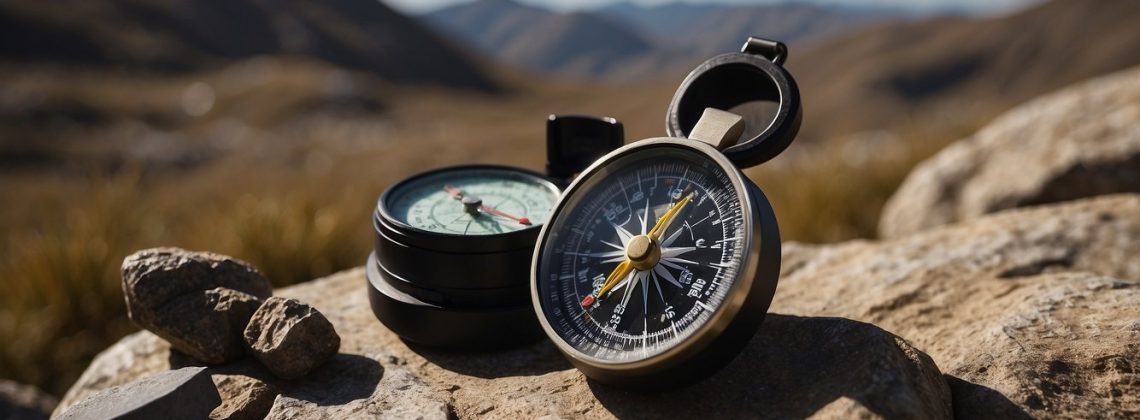
Geocaching is a popular outdoor activity that involves using GPS coordinates to locate hidden containers, or caches. While it is typically viewed as a recreational pursuit, geocaching can also be a valuable tool for survivalists. In this article, we will explore the pros and cons of using geocaching as a survivalist tool.
Understanding Geocaching
Geocaching involves using a GPS device to navigate to a specific set of coordinates, where a hidden cache is located. The cache may contain a logbook to sign, trinkets to trade, or other items of interest. Geocaching can be done anywhere in the world and is a fun way to explore new places, learn about history, and challenge yourself.
Geocaching for Survivalists
For survivalists, geocaching can be a useful tool for honing navigation skills, exploring new areas, and finding hidden resources. Geocaches can contain useful items such as water purification tablets, first aid supplies, or emergency food rations. In a survival situation, knowing how to use a GPS device to find these caches could be a lifesaving skill.
Pros of Geocaching for Survivalists
Geocaching can help survivalists develop important skills such as navigation, map reading, and problem-solving. It can also be a fun way to explore new areas and find hidden resources. Additionally, geocaching can provide a sense of community and connection with other outdoor enthusiasts.
Cons of Geocaching for Survivalists
While geocaching can be a valuable tool for survivalists, it does have some drawbacks. Geocaches can be difficult to find, especially in remote or heavily wooded areas. Additionally, relying solely on geocaching for survival resources could be risky, as caches may be damaged, vandalized, or removed by other geocachers.
Geocaching Variations and Challenges
There are many variations and challenges associated with geocaching, such as puzzle caches, multi-caches, and night caches. These variations can provide additional challenges and opportunities for learning new skills.
Key Takeaways
- Geocaching can be a valuable tool for survivalists, helping to develop important skills and find hidden resources.
- However, relying solely on geocaching for survival resources could be risky, as caches may be damaged or removed.
- Geocaching provides opportunities for learning new skills and exploring new areas through variations and challenges.
Understanding Geocaching
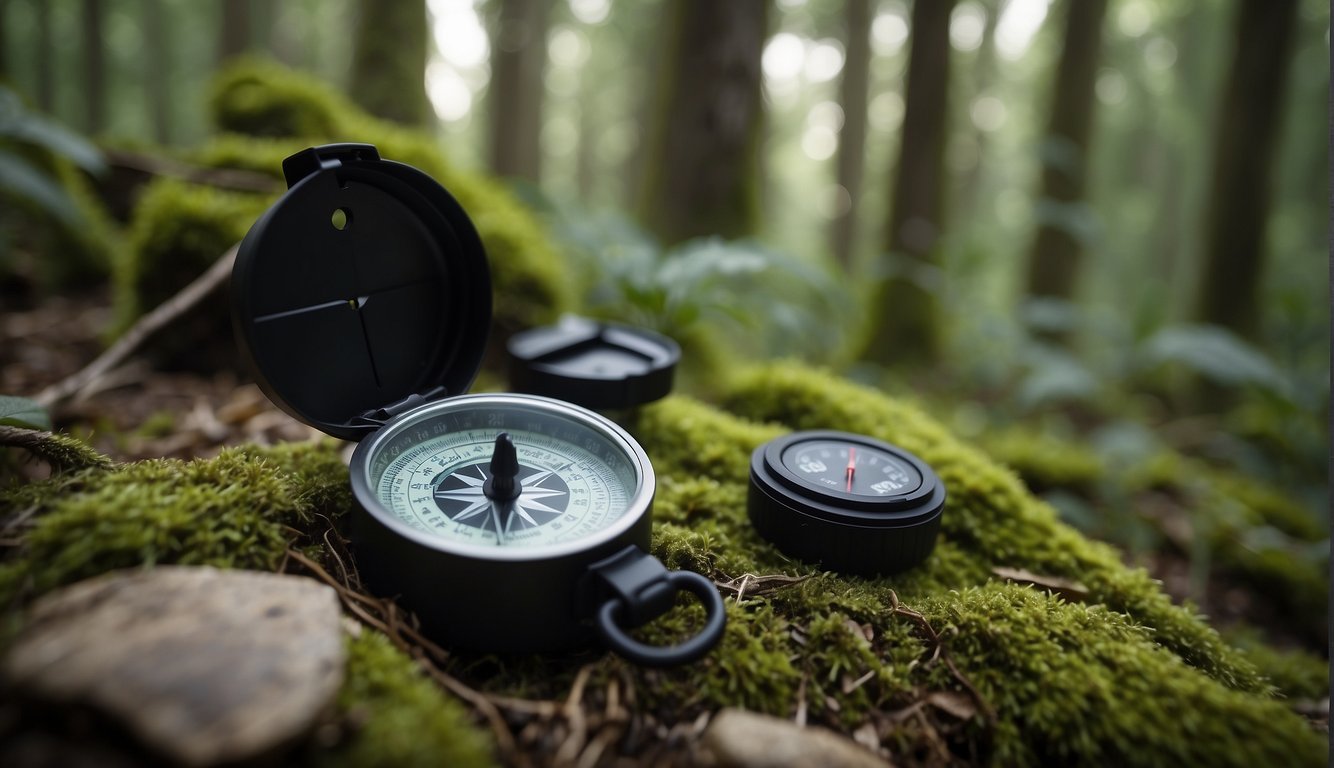
The Basics of Geocaching
Geocaching is an outdoor recreational activity that involves finding hidden containers, called geocaches, using GPS coordinates. Geocaches can be found all over the world and come in various sizes and difficulty levels. When you find a geocache, you can sign the logbook and sometimes exchange small trinkets with other geocachers.
To get started with geocaching, you will need a GPS device or a smartphone with GPS capabilities. You can search for geocaches on the official geocaching website, geocaching.com, or through various mobile apps. Once you have found a geocache, you can use your GPS device or smartphone to navigate to its location.
Geocaching Equipment
To participate in geocaching, you will need some basic equipment. Here are some essential items to consider:
- GPS Device or Smartphone: A GPS device or smartphone with GPS capabilities is necessary to navigate to the geocache location.
- Logbook: Geocaches contain logbooks where you can sign your name and date to show that you found the cache.
- Handheld: A handheld tool can be useful for digging through dirt or reaching high places to retrieve a geocache.
- Trinkets: Some geocaches contain small trinkets that you can exchange with other geocachers. If you take a trinket, you should leave one of equal or greater value.
This article goes into more detail on a Doomsday Prep Checklist
In conclusion, geocaching is a fun and exciting way to explore the outdoors and discover hidden treasures. With the right equipment and a sense of adventure, you can enjoy this activity as a tool for survivalists.
Geocaching for Survivalists
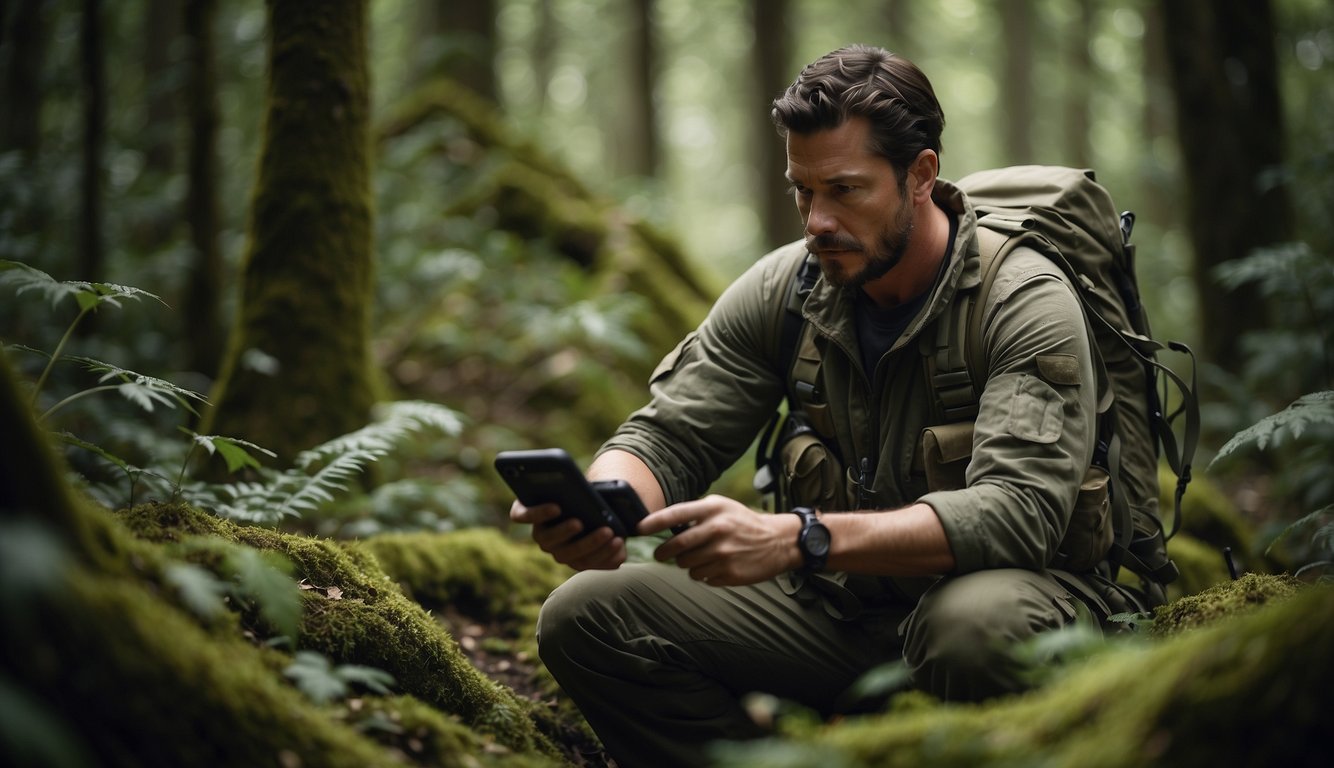
Geocaching is a popular outdoor activity that involves using a GPS unit or smartphone to locate hidden containers or caches. While it is often seen as a recreational activity, it can also be a valuable tool for survivalists looking to enhance their skills and preparedness. In this section, we will explore the pros and cons of using geocaching as a tool for survivalists.
Skills Enhancement through Geocaching
Geocaching can help survivalists enhance their skills in various ways. For instance, it can improve navigation skills, as you will need to use a GPS unit or smartphone to navigate to the cache coordinates. It can also help improve problem-solving skills, as caches are often hidden in challenging locations that require creative thinking to locate.
Additionally, geocaching can help survivalists improve their outdoor skills, such as camping, hiking, and orienteering. By participating in geocaching, you can explore new areas, learn about the local flora and fauna, and gain experience in navigating different terrains.
Preparedness and Geocaching
Geocaching can also be a useful tool for preparedness. For instance, caches can be used to store emergency supplies, such as water, food, and first aid kits. By placing caches in strategic locations, you can ensure that you have access to essential supplies in case of an emergency.
Moreover, geocaching can help you practice your survival skills in a controlled environment. For instance, you can use geocaching to practice building shelters, starting fires, and purifying water. By doing so, you can gain experience and confidence in your survival skills, which can be invaluable in a real-life emergency situation.
However, it is important to note that geocaching has its limitations as a survival tool. For instance, caches may not always be accessible or may contain outdated supplies. Additionally, relying solely on geocaching for survival may not be feasible, as caches may be limited in number and may not be available in all locations.
In conclusion, geocaching can be a valuable tool for survivalists looking to enhance their skills and preparedness. By participating in geocaching, you can improve your navigation, problem-solving, and outdoor skills, as well as practice your survival skills in a controlled environment. However, it is important to use geocaching in conjunction with other survival tools and techniques to ensure your safety and preparedness in all situations.
Pros of Geocaching for Survivalists
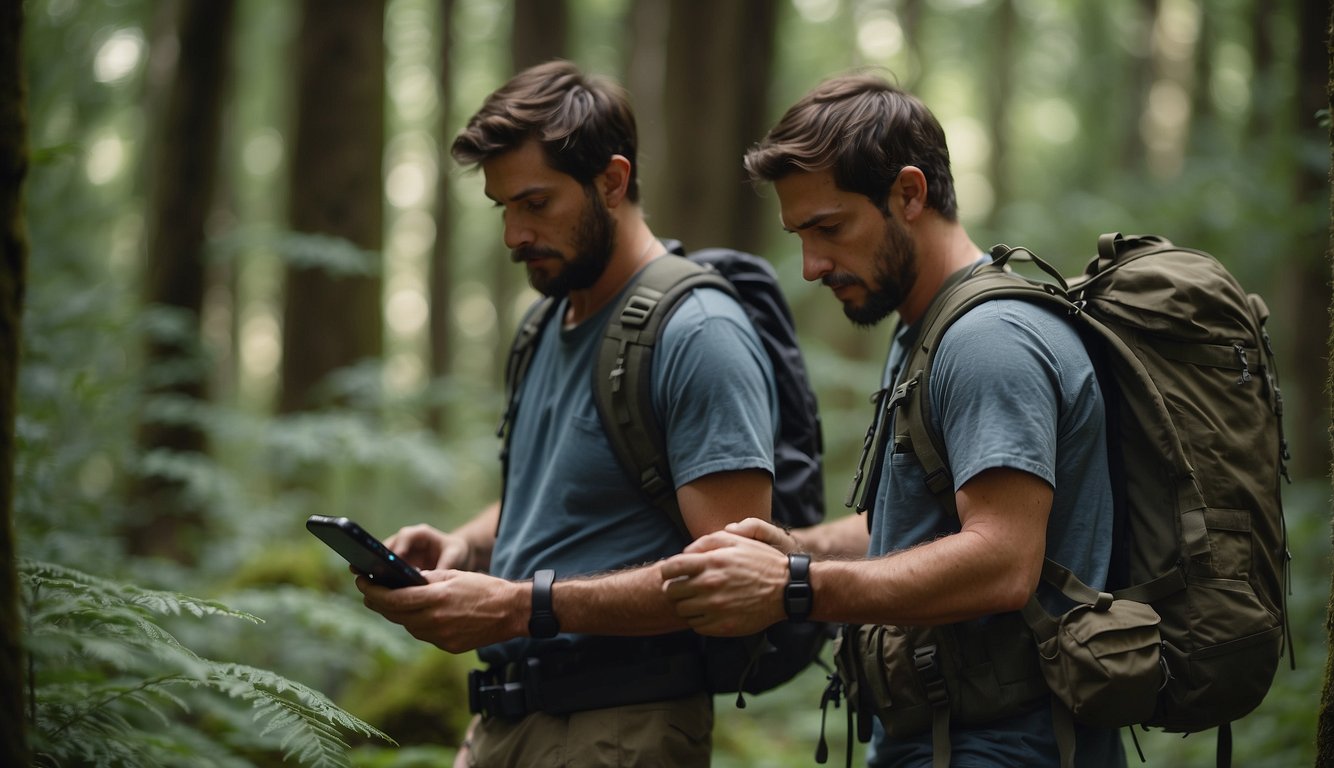
Geocaching can be a valuable tool for survivalists, providing numerous benefits that can aid in preparing for and surviving in emergency situations. Here are some of the pros of geocaching for survivalists:
Physical Fitness and Health
Geocaching involves active participation in outdoor activities such as hiking and biking, which can help improve your physical fitness and overall health. It provides an opportunity to engage in physical exercise while also enjoying the adventure and competition of searching for caches.
Navigation and Situational Awareness
Geocaching requires the use of GPS devices and maps to navigate to hidden caches, which can help improve your navigation skills and situational awareness. This can be particularly useful in emergency situations where you may need to navigate unfamiliar terrain to reach safety.
Community and Teamwork
Geocaching is a popular activity that has a large community of enthusiasts, known as “geocachers”. Participating in geocaching events and communicating with other geocachers can help build a sense of community and teamwork, which can be valuable in emergency situations where cooperation and collaboration are necessary.
Overall, geocaching can be a fun and rewarding activity for survivalists, providing opportunities for physical exercise, navigation skill-building, and community building. However, it is important to remember that geocaching should not be relied upon as the sole means of survival preparation, and other survival skills and resources should also be developed.
Cons of Geocaching for Survivalists
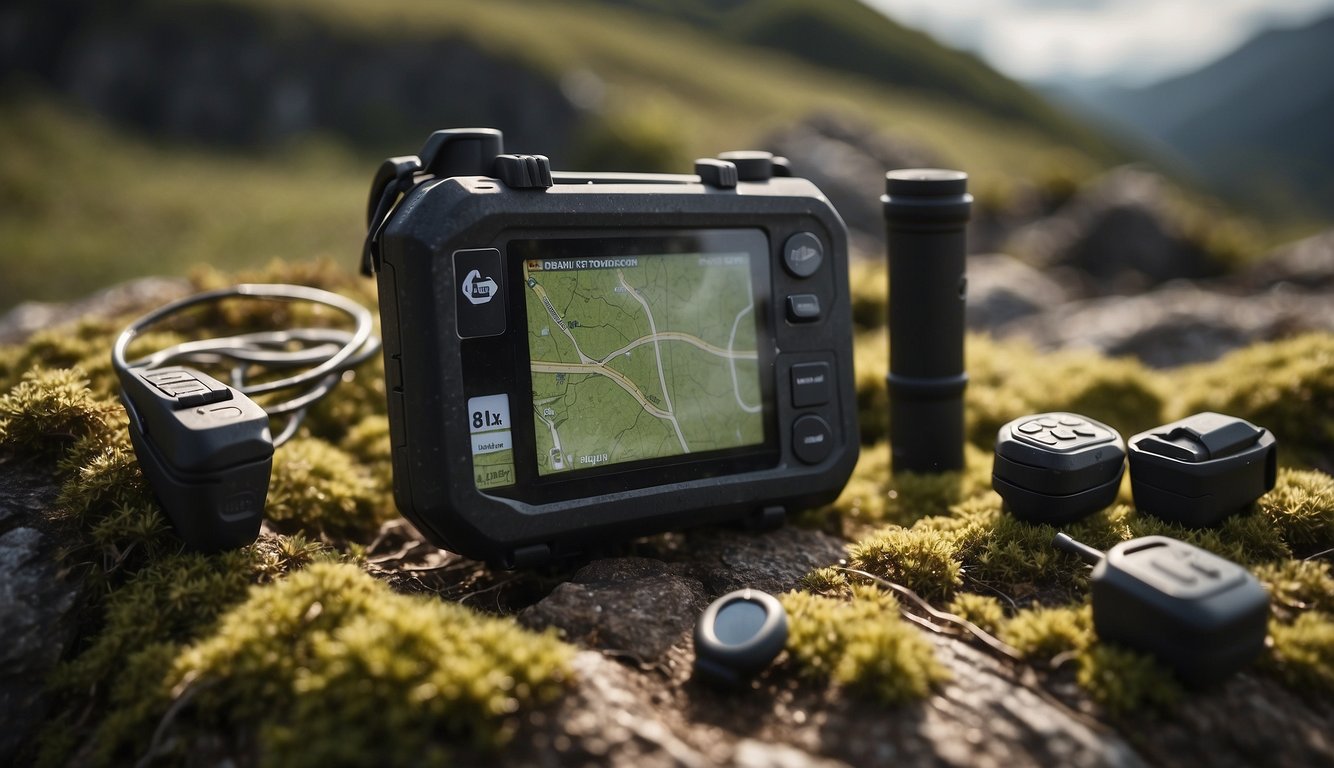
Geocaching can be a fun and exciting activity, but it also has its drawbacks for survivalists. In this section, we will discuss some of the cons of geocaching that you should be aware of before using it as a tool for survival.
Technology Dependence
One of the biggest cons of geocaching for survivalists is the reliance on technology. Geocaching requires a GPS device or a smartphone with GPS capabilities to locate caches. If your device runs out of battery or malfunctions, you may be unable to find the cache or navigate your way back to safety. Additionally, GPS devices and smartphones require AA batteries, which may not be readily available in a survival situation.
Environmental Concerns
Geocaching can also have negative impacts on the environment. Caches may be hidden in sensitive areas, such as wildlife habitats or archaeological sites, which can be damaged by human activity. Additionally, geocachers may inadvertently introduce invasive species or disturb natural habitats while searching for caches.
Unpredictability and Safety Risks
Geocaching can be unpredictable and pose safety risks for survivalists. Caches may be located in remote or dangerous areas, such as steep cliffs or rushing rivers, which can be hazardous to navigate. Geocachers may also encounter wildlife, such as bears or snakes, which can be dangerous if not approached with caution. Furthermore, geocaching can attract unwanted attention from non-geocachers, known as “muggles,” who may be suspicious of your activities and pose a safety risk.
In conclusion, geocaching can be a useful tool for survivalists, but it is important to be aware of its limitations and potential drawbacks. By understanding the cons of geocaching and taking appropriate precautions, you can incorporate this activity into your survival toolkit while minimizing risks to yourself and the environment.
Geocaching Variations and Challenges
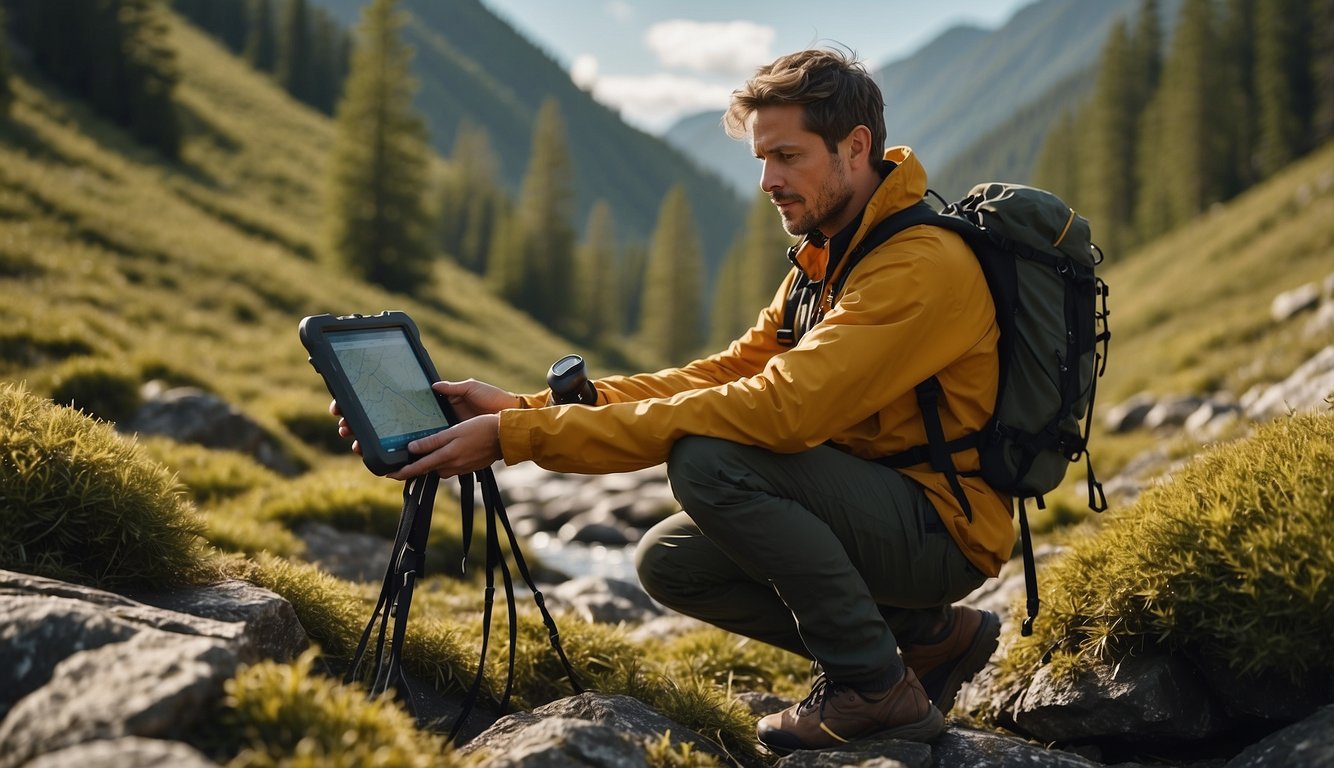
Geocaching is a fun and exciting activity that can be enjoyed by anyone. However, there are variations and challenges that you should be aware of before embarking on the journey.
Traditional vs. Virtual Caches
Traditional caches are physical containers that you can find by using GPS coordinates. Virtual caches, on the other hand, are locations that you can visit and verify that you have been there by answering a question or taking a photo. Virtual caches do not have a physical container, but they can still be challenging to find.
Geocaching Events and Competitions
Geocaching events and competitions are a great way to meet other geocachers and test your skills. These events can range from simple meet and greets to multi-day competitions with prizes. Geocaching competitions can be intense and require a high level of skill and knowledge to win.
Some geocaching platforms offer competitions where you can win prizes. These competitions can be a great way to challenge yourself and compete against other geocachers. However, it is important to read the rules and regulations carefully before participating in any competition.
In Canada, geocaching is a popular activity, and there are many geocaching events and competitions throughout the year. These events are a great way to explore new areas and meet other geocachers.
In conclusion, geocaching variations and challenges can add excitement and complexity to the activity. Whether you prefer traditional caches or virtual caches, or enjoy participating in geocaching events and competitions, there is something for everyone. Just remember to always follow the rules and regulations, and respect the environment and other geocachers.
Conclusion
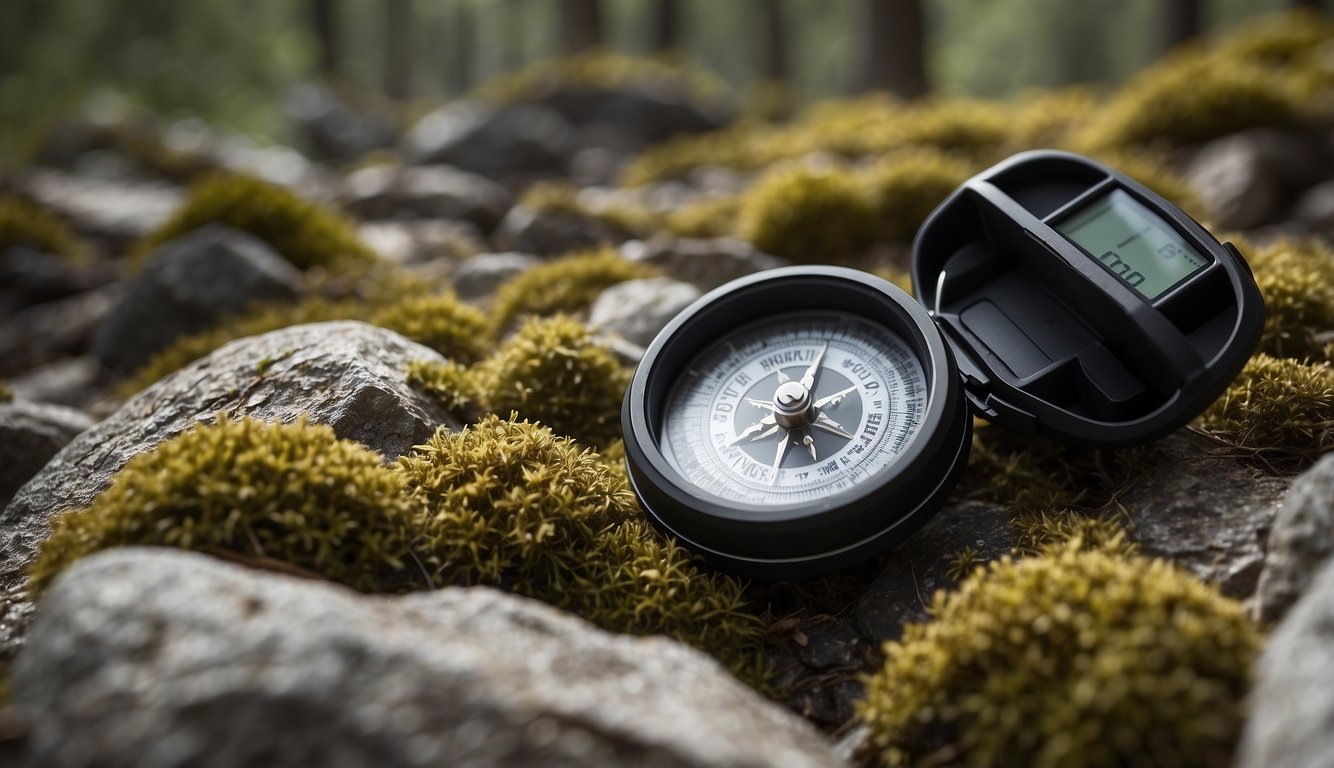
Geocaching can be a useful tool for survivalists, providing opportunities to practice navigation and problem-solving skills, as well as discovering new locations and resources. However, there are also some potential drawbacks to consider.
One of the main pros of geocaching is that it can help you develop your navigation skills. By using a GPS device or a map and compass, you can practice finding your way through unfamiliar terrain, which could be helpful in a survival situation where you need to navigate to safety.
Another benefit of geocaching is that it can help you discover new locations and resources. By exploring different areas, you may come across sources of water, shelter, or food that you wouldn’t have otherwise known about.
However, there are also some cons to geocaching. One potential drawback is that it can be time-consuming and distracting. If you’re spending a lot of time searching for caches, you may not be focusing on other important survival tasks, such as gathering food or building shelter.
Another potential issue with geocaching is that it can be dangerous if you’re not careful. If you’re exploring remote areas, you may be at risk of getting lost or injured, and if you’re not prepared for the conditions, you could be putting yourself in danger.
Overall, geocaching can be a useful tool for survivalists, but it’s important to weigh the pros and cons before deciding whether or not to incorporate it into your survival strategy. By being aware of the potential benefits and drawbacks, you can make an informed decision about whether or not geocaching is right for you.

Leave a Reply